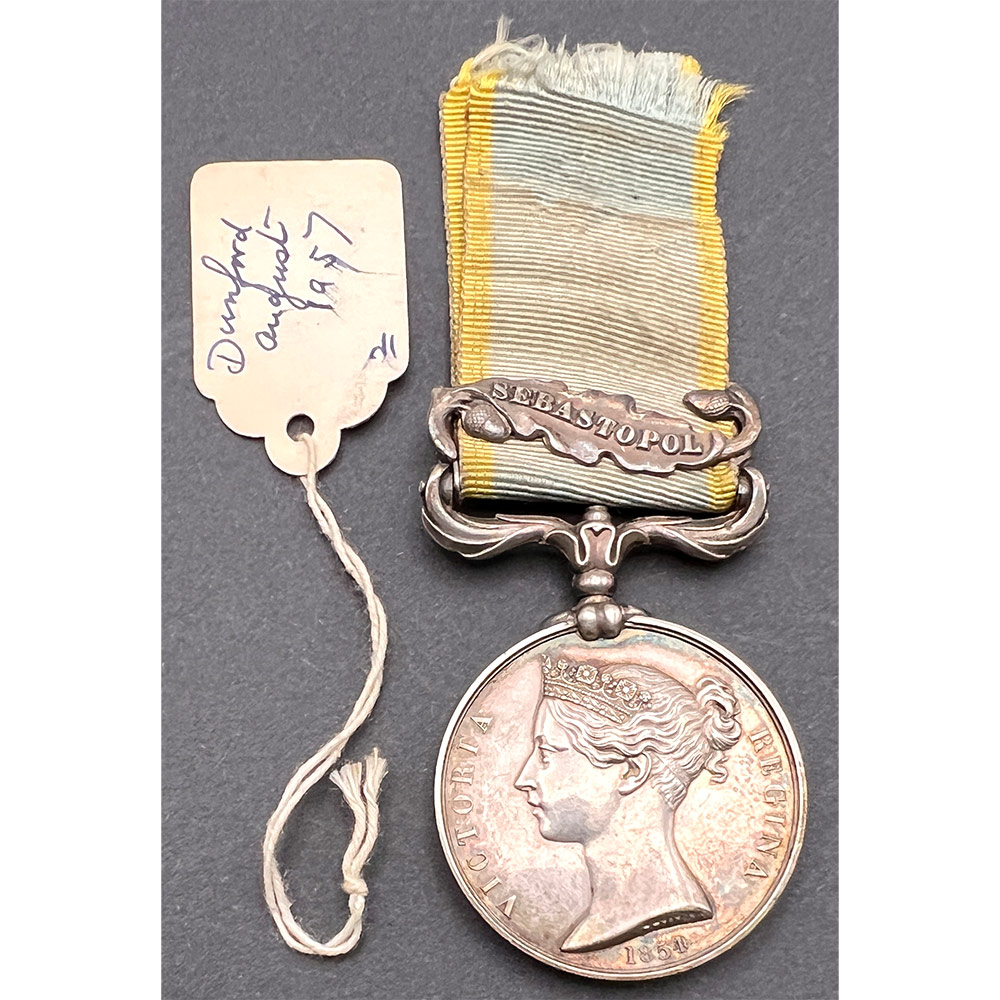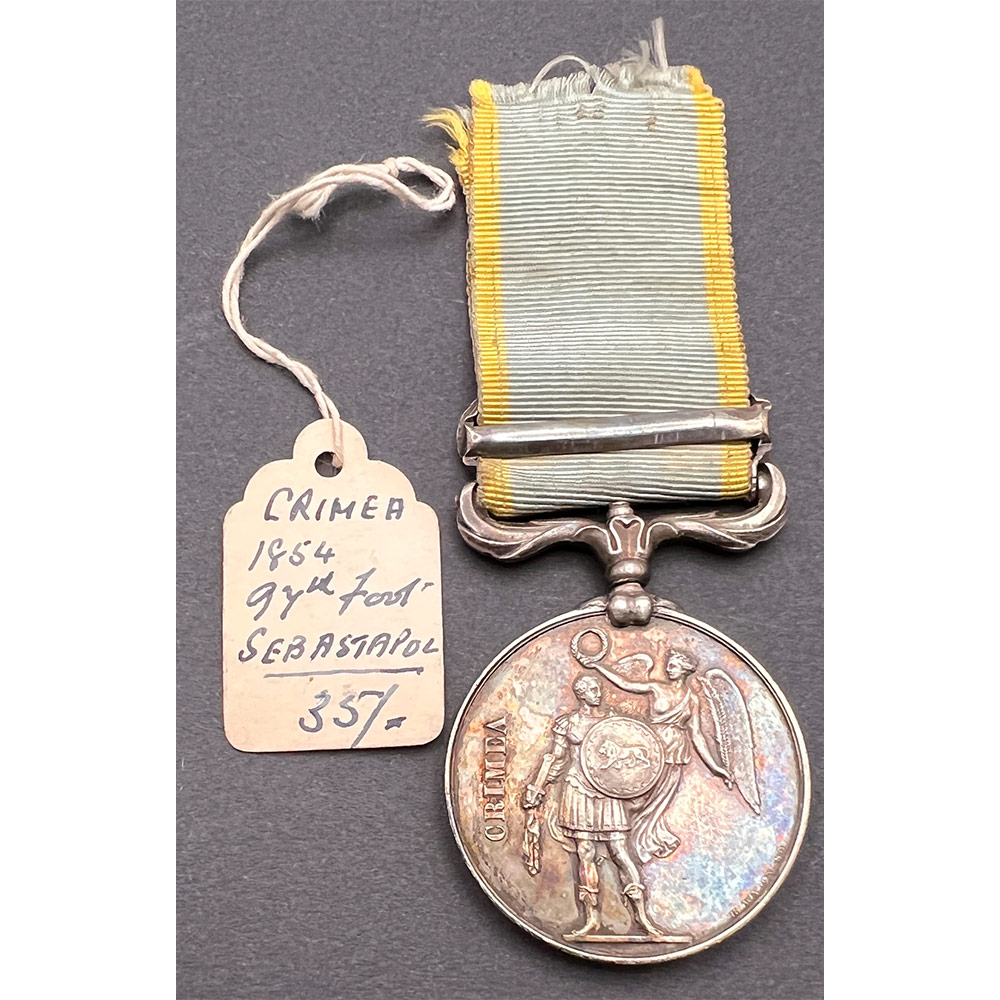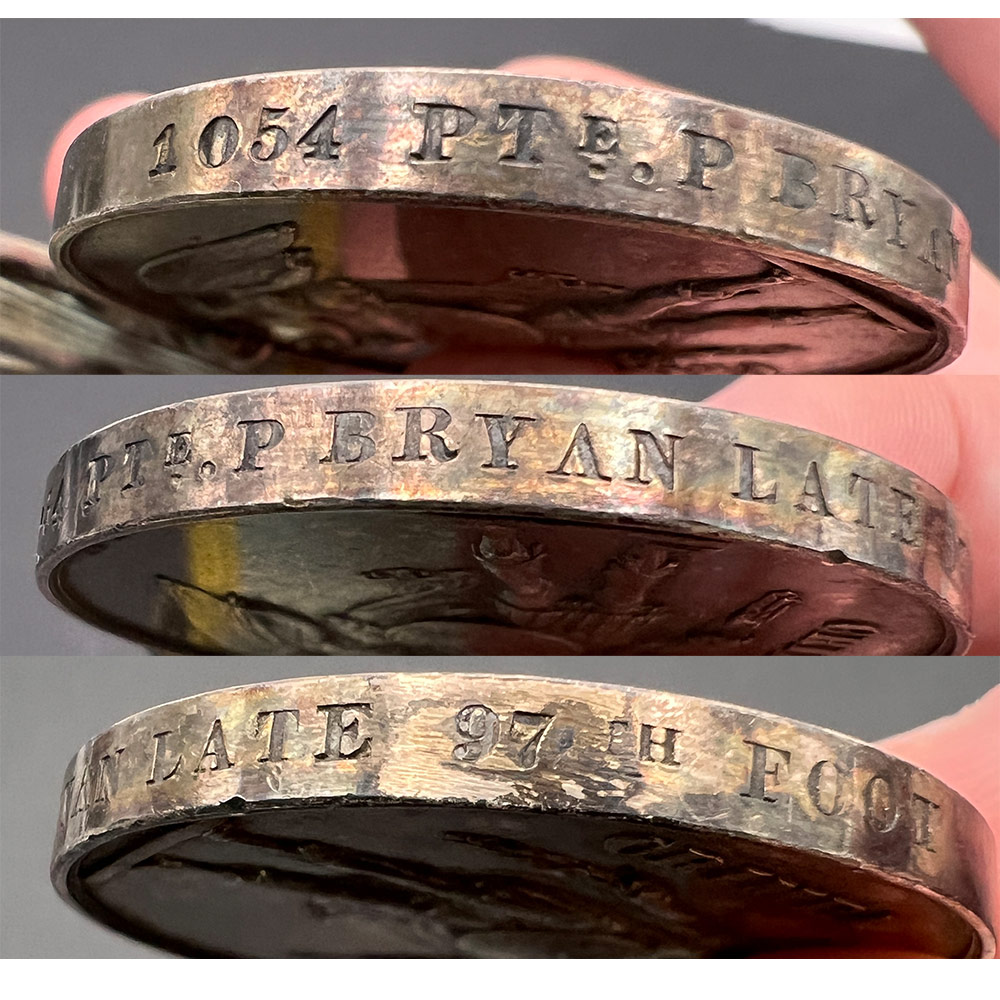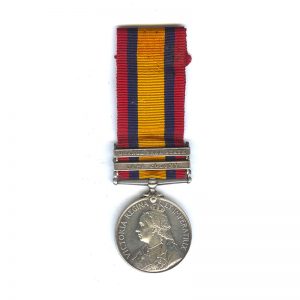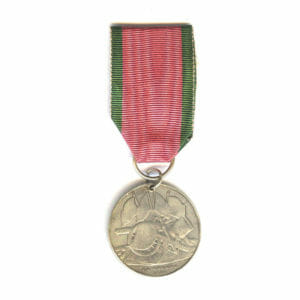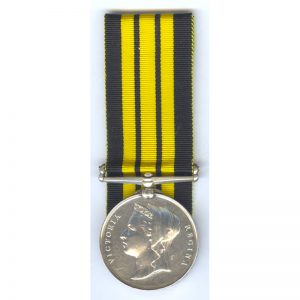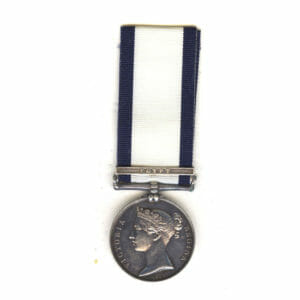Description
Crimea Medal, bar Sebastopol, Officially Impressed, Patrick Bryan 97th Regiment of Foot, the Earl of Ulster’s.
Officially impressed: “1054 Pte. P. Bryan Late 97th Foot”
Slight official correction to “97”
Entitlement confirmed on the medal roll (WO100/33), being an interesting and unusual issue having been officially impressed featuring the recipients service number as well as “Late” before the regiment.
The medal roll has no further remarks on time of issue, so the medal must have been claimed by him after discharge in the late 1850s or 1860s, in similar style to the Indian Mutiny Medals issued in the 1860s.
Provenance, with an old price tag reading: “Dunfort August 1957” “Crimea 1854 97th Foot Sebastppol 35/-”
Patrick Bryan or Brian as it is spelled on his service records, was an Irishman from Canmere, Athlone, Roscommon Ireland.
He was born there during 1819, and first attested for service with the 97th Foot on 18th March 1838 at the age of 19.
He went on to serve for 21 years, before his was discharged to pension at his own request.
“His conduct has been good he is in possession of 4 good conduct badges, He was tried by a regimental court martial in 1843 for being drunk in Barracks, found guilty and sentenced to 10 days solitary imprisonment.
Total service of 20 years 205 days, with 15 years 2 months spent overseas consisting of:
7 Years 6 Months, Corfu and Malta
4 Years 8 Months, in North America
2 years 1 months in Greece and the Crimea
11 Months in East Indies.
His medical report:
“No 1054 Pte Patrick Brian is an old worn out soldier, who has suffered much from rheumatism at various times and is now considered unfit for further Military duty. His disability as not been aggravated by vice of intemperance.”
He was officially discharged form service at Chatham on 7th June 1859.
